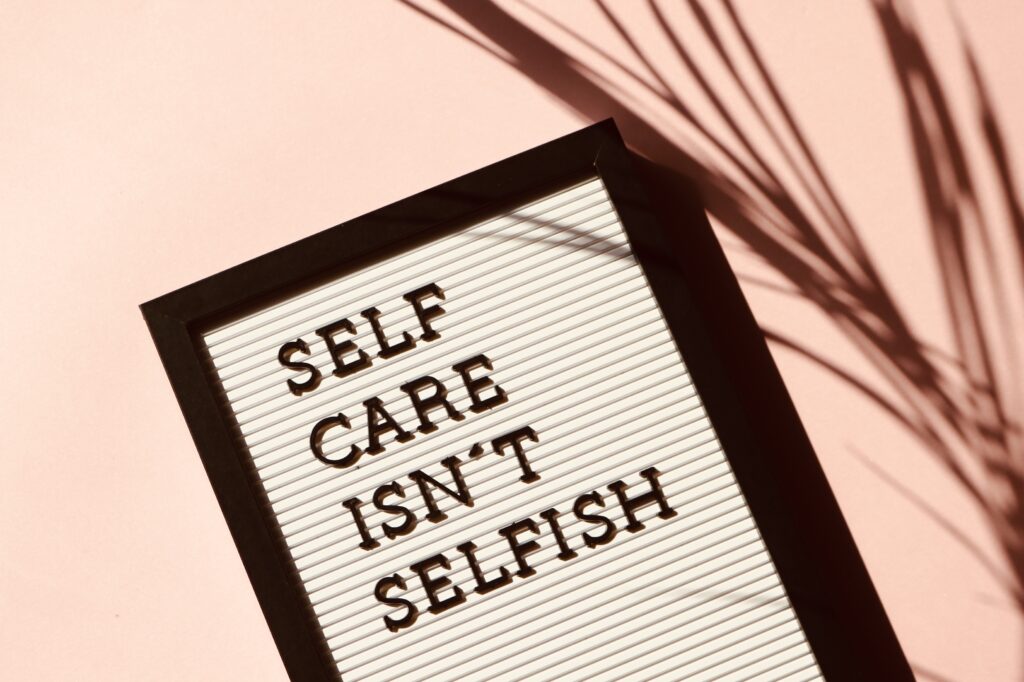
Are you tirelessly trying to shed those last few pounds but finding yourself stuck in a frustrating weight loss plateau? If so, fear not! In this article, we will explore effective strategies to help you break through that stubborn plateau and reignite your weight loss journey. Don’t lose hope just yet – with a few simple tweaks and some dedicated effort, you’ll be back on track to achieving your desired weight goal in no time! Let’s dive in and discover the secrets to overcoming this common hurdle on your weight loss journey.

This image is property of images.pexels.com.
Understanding Weight Loss Plateau
What is a weight loss plateau?
A weight loss plateau refers to a phase in your weight loss journey when you struggle to lose any further weight, despite your continued efforts. It can be frustrating and demotivating, as it feels like your progress has come to a halt. During a plateau, you may notice that your weight remains stagnant for several weeks or even months, even though you have been following a strict diet and exercise routine.
Why do weight loss plateaus occur?
Weight loss plateaus occur due to several reasons. Initially, when you begin to lose weight, your body undergoes various physiological changes. However, as you progress and shed those initial pounds, your body adjusts to the new energy requirements, leading to a slower metabolism. This change makes it challenging to create a calorie deficit and continue losing weight at the same rate as before. Additionally, your body may also experience a decrease in the production of certain hormones that aid in weight loss, further contributing to plateaus.
Factors contributing to a weight loss plateau
Several factors can contribute to a weight loss plateau. One common factor is a lack of variety in your diet and exercise routine. Your body is highly adaptable and may become accustomed to the same foods and workouts over time. Another factor is inadequate calorie deficit. As you lose weight, your calorie needs decrease, so it is essential to reevaluate your calorie intake regularly. Other factors, such as hormonal imbalances, stress, lack of sleep, and certain medications, can also contribute to weight loss plateaus.
Evaluating Your Weight Loss Journey
Track your progress
One of the crucial steps in understanding and overcoming a weight loss plateau is tracking your progress. Keep a record of your weight, measurements, and body composition changes. Additionally, note down your dietary intake and exercise routine. Tracking these variables not only helps you identify patterns but also provides motivation when you see your progress over time.
Assess your diet and exercise routine
When facing a weight loss plateau, it is essential to take a step back and evaluate your current diet and exercise routine. Look for any patterns or potential areas of improvement. Consider factors like the types of foods you consume, portion sizes, meal timing, and the balance of macronutrients (carbohydrates, proteins, and fats). Similarly, examine your exercise routine, including the intensity, duration, and variety of workouts.
Identify any recent changes or challenges
Often, a weight loss plateau can be triggered by recent changes or challenges in your life. Stressful events, such as work deadlines, personal problems, or a change in routine, can disrupt your progress. Additionally, certain medications or medical conditions can impact your body’s ability to lose weight. Identifying these external factors can help you address them and make necessary adjustments to kickstart your weight loss again.
Revamping Your Diet
Reassess your calorie intake
To overcome a weight loss plateau, it is crucial to reassess your calorie intake. As you lose weight, your body’s energy requirements decrease, so you may need to adjust your calorie deficit. Keep in mind that a safe and sustainable weight loss rate is typically 1-2 pounds per week. Aim to create a moderate calorie deficit by reducing your calorie intake slightly or increasing your physical activity.
Optimize macronutrient ratios
Macronutrients play a significant role in your overall health and weight loss journey. Reevaluate the balance of carbohydrates, proteins, and fats in your diet. While there is no one-size-fits-all approach, many individuals find success with a balanced approach, including a moderate intake of all macronutrients. Focus on whole grains, lean proteins, healthy fats, and plenty of fruits and vegetables.
Consider intermittent fasting
Intermittent fasting has gained popularity as an effective tool for weight loss. It involves alternating periods of fasting and eating within a specified window. This approach can help regulate your metabolism and insulin levels, potentially breaking through a weight loss plateau. However, it is essential to consult with a healthcare professional before starting any fasting regimen.
Incorporate more whole foods
Whole foods, such as fruits, vegetables, lean proteins, whole grains, and legumes, are packed with essential nutrients and fiber. They provide satiety while keeping your calorie intake in check. Replace processed and refined foods with whole food options to nourish your body and support your weight loss efforts.
Adjust portion sizes
Portion sizes can often be a stumbling block when it comes to weight loss. Even healthy foods can contribute to a calorie surplus if consumed in excessive amounts. Pay attention to your portion sizes and consider using measuring cups or a food scale to ensure accuracy. Experiment with smaller plates and bowls to visually trick your brain into feeling satisfied with less food.
Promote satiety with protein and fiber
Including adequate protein and fiber in your diet is crucial for weight loss. These nutrients promote a feeling of fullness, reduce hunger, and support muscle maintenance. Incorporate lean sources of protein, such as poultry, fish, tofu, and legumes, and increase your fiber intake through fruits, vegetables, whole grains, and nuts.
Watch out for hidden calories
Hidden calories can easily sabotage your weight loss efforts. Be mindful of condiments, sugary beverages, dressings, and sauces that may contain excessive calories. Opt for lower-calorie alternatives or make your own versions at home. Additionally, be cautious of mindless snacking, as even small bites throughout the day can add up.
Overhauling Your Exercise Routine
Increase intensity and duration
When faced with a weight loss plateau, it may be time to step up the intensity and duration of your workouts. Your body adapts to routine workouts, so challenging it with higher intensity exercises can help break through the plateau. Increase the resistance, speed, or difficulty level of your exercises and consider gradually extending the duration of your workouts.
Incorporate strength training
Strength training is a valuable addition to any weight loss journey. It not only helps build lean muscle mass but also boosts your metabolism, aiding in weight loss. Include resistance exercises, such as weightlifting, bodyweight exercises, or using resistance bands, at least two to three times a week. Focus on all major muscle groups for a balanced approach.
Try different workout styles
Variety is key when it comes to exercise, especially during a weight loss plateau. Trying out different workout styles not only challenges your body in new ways but also keeps you mentally engaged. Consider incorporating activities like yoga, Pilates, cycling, swimming, or group fitness classes to prevent boredom and stimulate your progress.
Implement HIIT workouts
High-Intensity Interval Training (HIIT) workouts have shown promising results for breaking through weight loss plateaus. These workouts involve short bursts of intense exercise followed by periods of rest or lower intensity. HIIT workouts help increase your metabolic rate, burn more calories, and improve cardiovascular fitness. Be sure to consult with a fitness professional to ensure proper form and avoid injury.
Consider working with a personal trainer
When facing a weight loss plateau, seeking guidance from a personal trainer can be highly beneficial. They can assess your current fitness level, create a customized workout plan, and provide ongoing support and motivation. A personal trainer can also introduce you to new exercises and techniques, ensuring that you are pushing yourself appropriately to overcome the plateau.

This image is property of images.pexels.com.
Prioritizing Sleep and Stress Management
Get enough quality sleep
Adequate sleep is often overlooked, but it plays a crucial role in your weight loss journey. Lack of sleep can disrupt hormone balance, increase hunger and cravings, and hinder your ability to make healthy choices. Aim for seven to nine hours of quality sleep each night. Establish a bedtime routine, create a sleep-friendly environment, and limit exposure to electronic devices before bed.
Manage stress levels
Stress can have a significant impact on your weight loss efforts. When you experience stress, your body releases cortisol, a hormone that can promote weight gain and prevent fat loss. Find healthy ways to manage your stress levels, such as practicing mindfulness, engaging in hobbies, spending time in nature, or socializing with loved ones. Experiment with different stress management techniques to identify what works best for you.
Practice relaxation techniques
Incorporate relaxation techniques into your daily routine to help manage stress and support weight loss. Deep breathing exercises, meditation, yoga, and tai chi are effective practices for reducing stress, promoting relaxation, and improving overall well-being. Make these techniques a priority, even if it’s just a few minutes each day, to create a calmer and more balanced mindset.
Limit exposure to stress triggers
Identify and limit exposure to stress triggers in your life. This may involve setting boundaries with work, creating a peaceful home environment, or avoiding situations that consistently cause stress. By proactively managing stress triggers, you can create a more supportive environment for your weight loss journey.
Rethinking Your Approach
Set realistic goals
During a weight loss plateau, it is essential to reevaluate your goals. Set realistic and achievable goals that focus on overall health and well-being, rather than solely on the number on the scale. Shift your focus to non-scale victories, such as increased energy levels, improved fitness performance, or fitting into smaller clothing sizes. Celebrate these achievements along the way to stay motivated and positive.
Avoid excessive restrictions
Excessive restrictions can do more harm than good when it comes to weight loss. While it is important to create a calorie deficit, overly restrictive diets can lead to nutrient deficiencies, decreased metabolism, and a higher likelihood of binge eating. Instead, focus on building a sustainable and balanced approach to nutrition that allows for flexibility and enjoyment while supporting your weight loss goals.
Focus on non-scale victories
As mentioned earlier, weight loss is not solely about the number on the scale. Celebrate non-scale victories, such as improved mood, increased energy, enhanced sleep quality, or reduced joint pain. Acknowledging these positive changes can keep you motivated and help you shift your mindset towards long-term health and well-being.
Seek support and accountability
Facing a weight loss plateau can be challenging, but you don’t have to do it alone. Seek support from friends, family, or online communities who share similar goals and experiences. Find an accountability partner who can provide encouragement, share tips, and hold you accountable for your actions. Remember, having a support system can make all the difference in breaking through the plateau.
Celebrate milestones
Each milestone you achieve on your weight loss journey deserves celebration. Whether it’s losing a certain number of pounds, reaching a fitness goal, or sticking to your healthy eating plan for a specified period, reward yourself appropriately. Treat yourself to non-food rewards, such as a massage, new workout gear, or a day off from your routine. These rewards not only keep you motivated but also reinforce positive behaviors.

This image is property of images.pexels.com.
Ensuring Nutritional Adequacy
Consult a healthcare professional
If you are struggling with a weight loss plateau, it is wise to consult with a healthcare professional. They can assess your overall health, review your current nutrition and exercise plan, and provide personalized guidance based on your individual needs. A healthcare professional can also help identify any underlying medical conditions or nutrient deficiencies that may be contributing to the plateau.
Consider nutrient deficiencies
Certain nutrient deficiencies can hinder weight loss progress. Common deficiencies include vitamins D, B12, and iron, as well as essential minerals like calcium and magnesium. Talk to a healthcare professional or a registered dietitian to determine if you have any nutrient deficiencies and explore dietary or supplemental options to address them.
Take supplements if necessary
In some cases, dietary supplements may be necessary to ensure optimal nutrition while overcoming a weight loss plateau. However, it is essential to approach supplementation with caution and under the guidance of a healthcare professional. They can help determine if any specific supplements are necessary for your individual needs and recommend safe and effective options.
No Quick Fixes or Magic Solutions
Beware of fad diets or products
Quick fixes and miracle products promising rapid weight loss can be tempting, especially during a plateau. However, it is important to approach such claims with skepticism. Many fad diets and products are neither sustainable nor based on scientific evidence. Instead, focus on creating a balanced, nourishing, and sustainable approach to nutrition and exercise to achieve long-term results.
Avoid drastic measures
Drastic measures, such as severely restricting calories or adopting extreme workout routines, may seem tempting when faced with a weight loss plateau. However, these measures can be detrimental to your health and well-being. They can lead to nutrient deficiencies, muscle loss, decreased metabolism, and an unhealthy relationship with food. Emphasize gradual and sustainable changes for lasting results.
Be patient and persistent
Breaking through a weight loss plateau requires patience and persistence. Remember that weight loss is not always linear, and everyone’s journey is unique. It is normal to experience ups and downs along the way. Stay focused on your goals, trust the process, and believe in yourself. With time and effort, you will overcome the plateau and continue progressing towards your desired weight and overall health.
Addressing Underlying Medical Conditions
Examine hormonal imbalances
Hormonal imbalances can significantly impact weight loss efforts. Conditions like hypothyroidism or polycystic ovary syndrome (PCOS) can make it challenging to lose weight. If you suspect an underlying hormonal imbalance, consult with a healthcare professional who can order appropriate tests and recommend a treatment plan tailored to your needs. Addressing the hormonal imbalance may help break through the weight loss plateau.
Evaluate medication side effects
Certain medications, such as antidepressants, antipsychotics, or corticosteroids, can cause weight gain or hinder weight loss progress. If you are taking any medications and suspect they may be contributing to your weight loss plateau, discuss your concerns with a healthcare professional. They may be able to offer alternative medications or suggest adjustments to your treatment plan.
Consult with a healthcare professional
If you have tried various strategies and have not made progress through the weight loss plateau, it is essential to consult with a healthcare professional. They can assess your overall health, review your medical history, and run diagnostic tests to identify any underlying medical conditions that may be hindering your weight loss efforts. With their expertise, they can provide appropriate guidance and support for your specific situation.
Staying Mindful and Motivated
Practice mindful eating
Mindful eating involves paying attention to the present moment and your body’s signals when eating. Slow down, savor each bite, and listen to your body’s hunger and fullness cues. By practicing mindful eating, you can enhance your connection with food, prevent overeating, and make conscious choices that support your weight loss goals.
Find alternative stress management techniques
Food often becomes a coping mechanism during times of stress. Instead of turning to food for comfort, explore alternative stress management techniques. Engage in activities that bring you joy, such as reading, painting, walking in nature, or practicing mindfulness. Find healthy outlets to manage stress, reducing the likelihood of turning to food for emotional support.
Reignite your motivation
During a weight loss plateau, it is common for motivation to wane. Find ways to reignite your motivation and enthusiasm for your weight loss journey. Set new goals, create a vision board, or seek inspiration from success stories and transformational experiences. Remind yourself why you started this journey in the first place and the positive changes you have already experienced.
Reward yourself appropriately
When making progress or overcoming challenges, reward yourself in healthy and non-food-related ways. Treat yourself to a new workout outfit, a relaxing spa day, or a weekend getaway. By celebrating your achievements, you reinforce positive behaviors and create a supportive environment for continued success.
Breaking through a weight loss plateau requires a multifaceted approach that addresses various aspects of your lifestyle. By understanding the reasons behind plateaus, reevaluating your diet and exercise routine, prioritizing sleep and stress management, maintaining nutritional adequacy, rethinking your approach, addressing potential medical conditions, and staying mindful and motivated, you can overcome plateaus and continue your weight loss journey towards a healthier and happier you. Remember, it is a journey, and with dedication and perseverance, you will achieve your goals.


